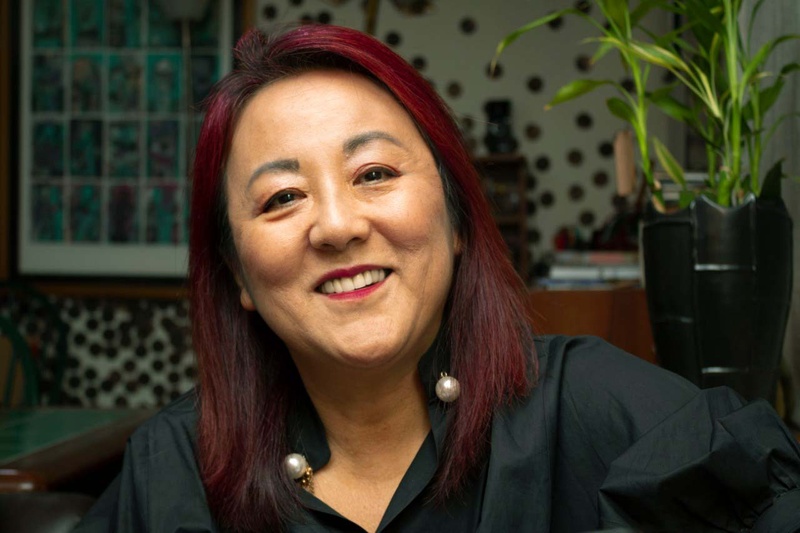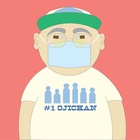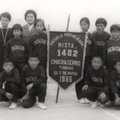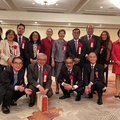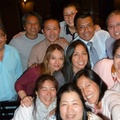The coronavirus pandemic is a watershed in the history of humanity. When we get older, hopefully, we will remember 2020-21 as the years when our lives changed forever. Although we are not yet free from the pandemic and, therefore, we lack the perspective to fully measure the impact of the virus, it is possible to make assessments or judgments about what has been experienced (and suffered).
The renowned Nikkei writer Doris Moromisato shares her experience during this anomalous year: “Like all of humanity, my pandemic year has been characterized by being extremely intense; I have also been prey to feelings that ranged from terror of physical extinction, horror at the threat of a medical emergency, and boredom with a confinement that destroyed our social routines, solidly built for years. It is true that part of my professional work—such as book editing and creative writing—was always carried out at home, but my main dedication—cultural management—was seriously affected by the cancellation of cultural events; However, new challenges were imposed on me, such as virtuality, and I feel that I am succeeding in this new professional normality.”
Authors are used to confinement when they write, but even they were not prepared for a 24-hour-a-day confinement, separated from the outside world.
“I have always liked to work at home, in my own habitat, with my rhythms and my own chaotic schedules; but I feel that this very intimate routine was also disrupted by the confinement of the pandemic. The truth is, it was nice to work at home knowing that the reward would be being able to escape to the outside world to enjoy its landscapes, its delicious culinary offerings, the certainty of friendship and its joys. Honestly, what I miss most are my road trips, driving my car wherever the map takes me. As soon as the pandemic ends, my first task will be to cross the desert of the Peruvian coast.”
During the first months of the pandemic, when in much of the world people applauded health workers from their windows or balconies for their heroic work and there was solidarity, it was often said that we would emerge better from this health, economic and social disaster. social. Now we are no longer sure. No one doubts, however, that we have changed in one way or another.
“Definitely, the pandemic more than changing my life, it changed my idea about life. We knew that human life was fragile and precarious, but we did not know how soon and so painfully certain this truth would materialize for us. The reality of the pandemic managed to surpass the most daring imagination. And, the most curious thing, I always demanded more time and solitude to write poetry and prose... and with the pandemic I have not been able to write anything, precisely because of the excess of loneliness and time: with confinement, I confirmed that this requirement is false," says Doris.
Can you create literature with so much death and pain around you?
“The fact that people were dying around each other like flies, that the air was filled with so much agony and terror in the face of death, made it very difficult to think about metaphors and fictions if the world was ending. I asked myself: wasn't it absurd to start a poem or a story if at any moment the damn virus could reach me and kill me?, and I thought that Frank Kafka must have experienced the same anxiety in his humid basement or Miguel Hernández in his unjust dungeon waiting for the mortal sentence; That's why I always left writing and looked out the window of my apartment.”
Tragedy produces horror, but it also teaches.
“This is the greatest lesson I found in the pandemic: to value my neighborhood and its streets, to love its people and the species that populate it: the pets, the stray cats and dogs, the birds that surround my building. Confinement has taught me humility and cooperation with the most immediate human beings: my neighborhood. I live on the fourth floor and for more than a year I have learned from my window to observe life carefully, like Anne Frank, Emily Dickinson or Sei Shonagon did. In the details of my neighbors I find germs of life and their smallest miseries, in each cat that elegantly crosses the early morning, death becomes a minor matter, and the Moon is almost always my great companion night after night and the one that “it manages to remind me how precarious our existence is.”
The pandemic has stripped us naked, as a species, as a society, as individuals.
“They say the pandemic has brought out the best and worst in people, and this is correct. Families in crisis, who shared a bad coexistence, went down. The screen homes, which are actually functional cohabitants, revealed their true nature.”
These days it is common to hear people say that the pandemic has helped them revalue their family. Doris has not needed a crisis like the current one to appreciate it.
“As for my family, I have not revalued it because it has always been highly valued by me, rather it confirmed the perception of maturity, serenity and optimism that I always had from my hundred relatives residing in Lima, Tumbes, Sao Paulo and several cities in Japan.
Confined, suspended in time, with so many hours to fill, many reflect, travel to the past—recent or remote—, long for when they could hug or kiss each other without fear, immerse themselves in nostalgia. The author of works like Chambala era un camino , on the contrary, clings to the present.
“Interestingly, the pandemic did not bring me back to any nostalgia; On the contrary, it makes me live in the present in a powerful way, perhaps as a protection mechanism or survival instinct to impose order and serenity in confinement; and thus survive, unscathed and lucid, the confinement. I wake up at the same time and try to sleep the same. I cook my food and choose ingredients very carefully. I select readings, movies, music, and topics that I should review or analyze. This formula has been around for a year now and it works very well for me.”
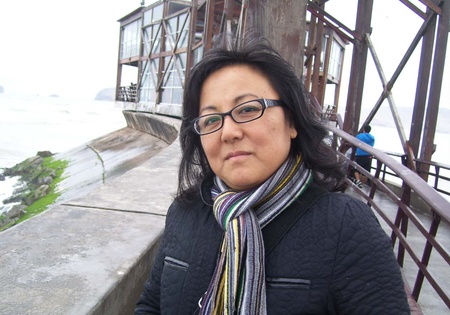
“MALLEABLE AND IMPURE FLOUR”
What will post-pandemic life be like? How will we emerge from it?
“I know that we will get out of this pandemic, but I also know that the world has just entered a permanent state of quarantines and social isolation. Life will never be the same again: I repeat, the vulnerability of the human species is absolutely scandalous. Stephen Jay Gould claims that humanity will destroy each other and the planet will continue to exist; He asks himself: if bacteria have existed for 3.5 billion years, why worry about a species that is only 200,000 years old? Honestly, I agree with him.”
The pandemic is a cure for humility, a reminder that we are fleeting and fragile beings.
“This unprecedented and global experience for humanity made me think about the most fragile people and their permanent and daily situation of possible mortality: those who suffer from immunological diseases, cancer, or the elderly. This pandemic has reminded us that we are all malleable and impure flour from the same sack.”
In the case of Peru, “this pandemic reminded us that we live in a country without a health response and absolutely incapable of protecting its population. There are 200 years of lack of public health planning, of absence of a culture of prevention and hygiene; “a sick and collapsed country due to bad governments whose characteristics have been lack of planning, populist demagoguery and corruption.”
NIKKEI COMMUNITY: CLEANLINESS AND RESILIENCE
The author of Chronicles of Nikkei Women evaluates the situation of the Peruvian Nikkei.
“About this pandemic, the saddest thing in the Nikkei community in Peru is the number of deaths of Japanese descendants, caused by COVID itself or by pre-existing diseases. To the sadness of the death, we must add the impossibility of funeral rites that have always been very important for our community. Let us remember that closeness or physical contact—that is, collective life—are fundamental axes in Nikkei culture and this social isolation has prevented families, fellow countrymen and Shimanchuu, from giving strength to each other. To this fact we must mention that the majority of Nikkei families own small and medium-sized businesses, businesses that have been forced to close or restrict their services to the detriment of their economies.”
The Peruvian community of Japanese origin has not been spared from mourning deaths that, however, have not been more numerous thanks, in large part, to prudence and neatness.
“The most positive thing about this pandemic is the way in which the Nikkei community has faced the health emergency, due to the good cleaning and prevention habits that have characterized our community as traits inherited from Japanese culture; For example, not entering homes with shoes or not purchasing street food products has been decisive in not becoming infected. These cleaning protocols and routines have helped when fighting the virus.”
Japanese immigrants in Peru overcame the abuses committed against them during World War II and built a model community. The Japanese in Japan rebuilt their country from the ashes after the atomic bombs in Hiroshima and Nagasaki and the bombings in Tokyo to turn it into one of the most developed nations in the world, a record that the Nikkei have lived up to during the pandemic.
Of the Nikkei community, Doris highlights “their courage and strength to face adverse or high-stress situations for very long periods, as well as their ability to recover quickly or adapt to new conditions—what is known today as resilience.” The histories of Japan and Okinawa are filled with admirable stories of recoveries and resurgences; Their communities around the world have repeated those admirable experiences and, in the particular case of Peru, have survived persecution and mistreatment over decades: I am sure that once again the Nikkei community will emerge victorious from this bitter pandemic that we are facing today. “It mourns everyone equally in the world.”
© 2021 Enrique Higa


